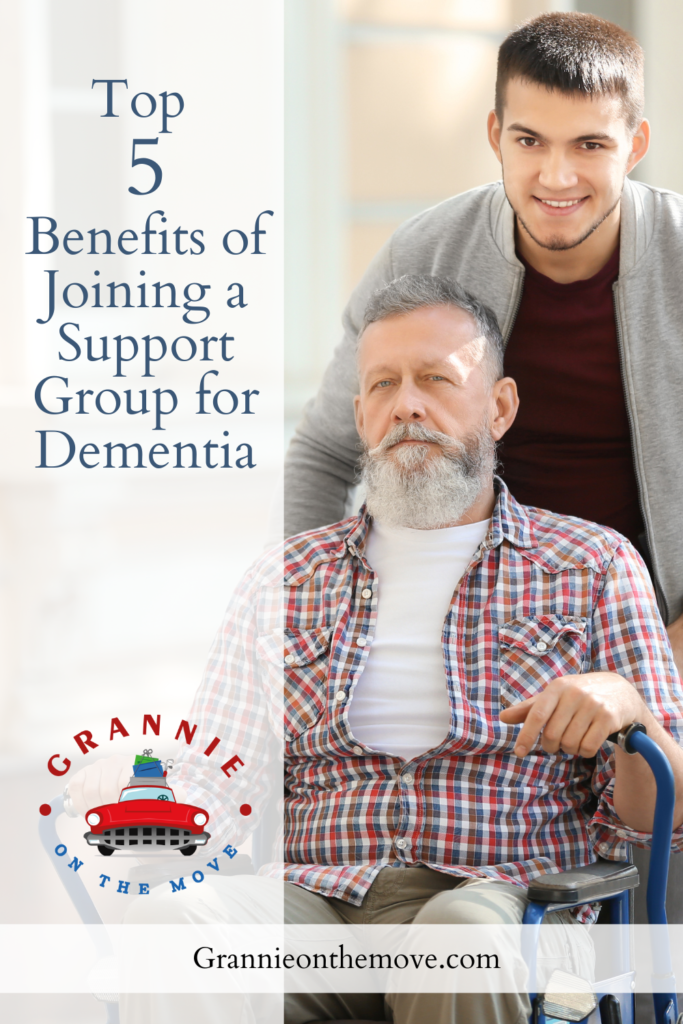For those dealing with dementia, whether as a patient or a caregiver, the journey can sometimes feel isolating and overwhelming. A support group for dementia can provide a lifeline in these challenging times.
This article will guide you through the top five benefits of joining such a group, demonstrating how it can offer solace, companionship, and much-needed resources.
Let’s delve into these benefits to better understand the impact a dementia support group can have on your life.
What Kind of Support Groups for Dementia Are There?
Dementia support groups come in two main types: Those designed specifically for caregivers and others intended for patients.
As a caregiver, you might feel overwhelmed by the responsibilities and emotional strain that come with caring for a loved one with dementia. Caregiver support groups are there for you, providing a space where you can share your experiences, learn from others going through the same journey, and find practical advice and emotional solace.
On the other hand, support groups for dementia patients offer a safe and understanding environment where they can express their feelings, share their struggles, and take comfort in the fact that they’re not alone. Both types of groups exist to provide an invaluable network of support and connection for those navigating the challenging landscape of dementia.
But what are the benefits of joining a support group for dementia patients or family caregivers? Let’s explore the top five benefits.
5 Benefits of Joining a Support Group For Dementia Patients and Caregivers
Before we delve into the specifics, we must understand the profound impact these support groups can have. Embarking on the dementia journey as a patient, family member, or even as a professional caregiver brings its own unique set of challenges that can, at times, seem insurmountable.
However, joining a support group can make this journey more manageable. These groups provide a comforting environment of understanding and empathy, where experiences are shared, advice is given, and feelings of isolation are mitigated.
Now, let’s examine the top five benefits of joining a dementia support group.
1. A Sense of Community and Belonging
Dementia can make one feel isolated even when surrounded by family members and loved ones. However, a support group for caregivers of people suffering from a form of dementia, offers a community that understands the journey and provides a sense of belonging.
Knowing that you are not alone in your struggles can be immensely comforting and empowering. For caregivers of dementia patients, access to a supportive community with a safe space is essential.
2. Emotional Support and Coping Strategies
As dementia can bring about strong emotions, it is essential to have a support network where you can safely express and process these feelings, whether you’re a patient or a caregiver. A support group for dementia caregivers offers an understanding environment where one can share their fears, frustrations, and grief without judgment.
For dementia patients, participating in a support group can be a therapeutic experience. Sharing personal experiences and hearing others’ stories can often lead to the realization that their feelings and struggles are not unique, reducing feelings of isolation and shame.
Similarly, caregivers can learn from other’s experiences, expanding their knowledge base on a variety of topics, and finding new ways to cope with the challenges.
3. Practical Advice and Resource Sharing
Caregiver support groups are an incredible source of practical advice for those caring for a loved one with dementia.
Members can share tips, free resources, and experiences handling various aspects of caregiving, from managing medications to finding respite care. This information can be invaluable, especially for those new to the dementia journey, or working with someone in the early stages of Alzheimer’s disease.
Dementia patient support groups also offer a wealth of knowledge and resources. Members can share strategies that have helped them manage their symptoms and improve their quality of life. This information exchange can empower older adults who may feel like they have little control over their condition.
4. A Source of Hope and Inspiration
Support groups for dementia can be a source of hope during difficult times.
Seeing others who have navigated similar experiences or hearing stories of resilience and strength within the group can provide much-needed inspiration to keep going.
It’s essential to remember that your diagnosis does not define you but rather how you handle it, and support groups can remind us of this.
5. Strengthened Relationships
Lastly, joining a support group for dementia can also strengthen relationships with family and friends.
Caregivers often find that sharing their experiences in a supportive environment enables them to communicate better with their loved ones and feel more connected.
Participating in a support group can help patients open up and communicate better with their caregivers, fostering a deeper understanding and connection.
How Do I Find a Dementia Support Group?
Whether you prefer in-person meetups, a simple message board, or online forums, there are dementia support groups available to suit your comfort and convenience.
Click here for more information about the Idaho chapter Alzheimer’s Association support group facilitated by Stacy Gunnerson with Grannie on the Move.
Local support groups often meet at community centers or healthcare facilities, providing an environment for in-person meetings and shared experiences. These in-person support groups can particularly benefit those who value physical presence, more local resources, and direct interaction. You can find information on your local chapter here on the Alzheimer’s Association website (or even start your own!).
On the other hand, virtual options like online support groups offer the advantage of accessibility, allowing you to connect with others regardless of your location or mobility. They provide an equally valuable platform for sharing experiences, seeking advice, and offering support to others in similar circumstances, all from the comfort of your home.
Here are a few of the most popular online support groups for dementia patients and caregivers:
- ALZConnected: A free online forum discussing Alzheimer’s disease and other dementias for both patients and caregivers.
- Memory People™: This is a closed (private) Facebook support group established in November 2010 by Rick Phelps, a patient diagnosed with Early-onset Alzheimer’s at age 57.
The group serves as a support and awareness platform for individuals dealing with Alzheimer’s, other types of dementia, and memory impairment. It provides a safe online space for people to share their experiences, offer advice, and lend emotional support to each other.
Being a closed group, it ensures a level of privacy and intimacy, allowing support group members to discuss their concerns and challenges freely and openly.
- Smart Patients: Hosted by the American Parkinson Disease Association, Smart Patients is an expansive (and free) online community catering to a wide array of conditions, including Parkinson’s disease, dementia, and other neurodegenerative disorders.
It boasts over 100 additional communities, each serving as a platform for individuals dealing with specific conditions to connect, share experiences, and offer mutual support.
To join, newcomers simply need to subscribe using their email address. Once subscribed, they gain access to the conversation threads on the site, providing an opportunity to engage in discussions, ask questions, and lend or receive support in a safe and understanding environment.
Conclusion
Remember, you don’t have to go through the challenges of dementia alone. Joining an online support group, or even local chapters, can bring immense benefits and help you navigate your journey with more confidence, knowledge, and strength. Reach out to one today and take the first step towards building a supportive community for yourself or your loved ones.
Need help? We’re here to help guide you through the process of finding the perfect placements, creating comprehensive care plans, financial advice, and providing a wealth of helpful resources and insights tailored to the needs of your loved one.
Contact us at Grannie On The Move today, your trusted and certified senior care advisors.


